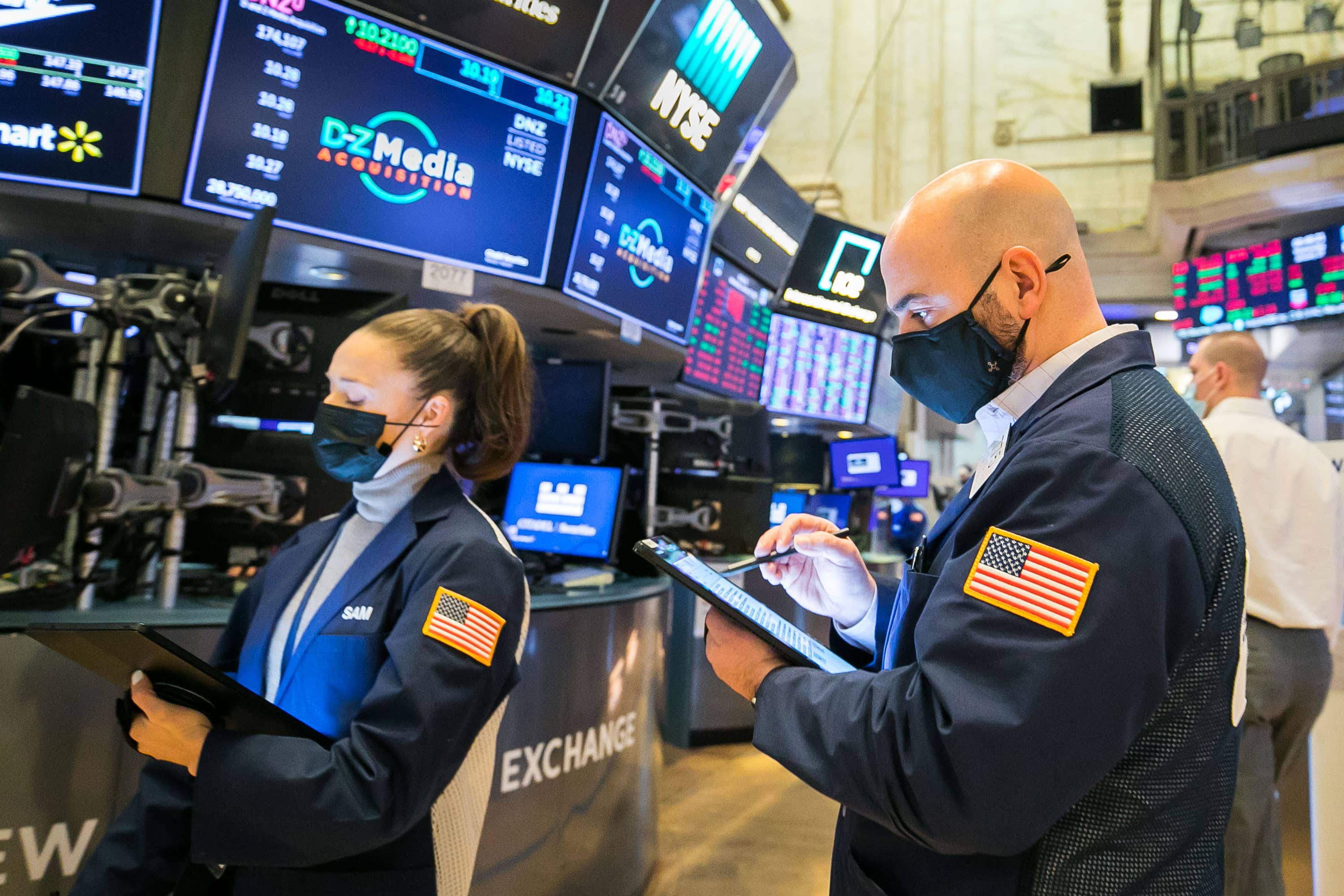Traders on the floor of the New York Stock Exchange.
Source: The New York Stock Exchange
The short squeeze craziness continues and discussions are split on three lines: the implications for trading (is there a power shift on Wall Street?), the implications for regulations (what action, if any, will the SEC take? should there be position limits on options?), and the implications for investor psychology.
To get a better appreciation for the impact on investor psychology, CNBC spoke with Dan Egan, managing director of behavioral finance and investing at Betterment. This interview has been edited for brevity.
I’ve been asked if this short squeeze craziness is different than the chat rooms of the late 1990s, which were also used to pump up stocks. Is it different?
Humanity has not changed, but the system we work in has changed. First, there is zero commissions — we tend to overconsume things when they’re free. Second, there is the gamification of trading. Third, social networking has greatly expanded. Finally, there is the pandemic. There is not a lot else to do. We are substituting internet trading for lack of connection.
You say humanity has not changed. Does that mean the motivations are the same? Much of this still seems like old-fashioned greed.
The greed is still there, but this is also different. This started out almost like an uprising. People came in with a sense of righteousness — let’s screw the hedge funds. That’s different than in the past.
You’re a behavioral finance guy. What does behavioral finance have to say about this?
First there is a need for belonging. People want a group of friends they can get rich with. They want to feel like winners. People don’t post their failures. They don’t brag about losing money. There is a lot of FOMO [Fear of Losing Out] — a lot of people are trying to avoid regretting not being a part of this.
What about other aspects of behavioral finance? Seems that a lot of people are engaged in the Gambler’s Fallacy — betting that this is never going to end.
There is an underappreciation of the fact that the stock can go south very quickly when there are no buyers. But no one is thinking that now. They just love watching it go up.
What about the fundamentals? There is certainly nothing to suggest GameStop is worth $300.
Nobody has been saying Gamestop is a great stock, they are just systematically looking at stocks with high short interest and trying to screw hedge funds. They are not fighting over fundamentals. This started out as, let’s screw the hedge funds, but this has gone beyond that. Once the stock started going way up, it attracted momentum traders and the FOMO crowd.
Will this Gamestop episode be viewed as an important moment historically? Will this correspond with a peak in risk appetite?
I don’t think this is a macro thing. I don’t think this says something grand about the investing climate. What it does indicate is that the boom-bust cycle has gotten greatly compressed. They bubble up and then bubble down very quickly. Everyone gets tunnel vision, and then they unwind.
Some of the people in the Reddit chat rooms seem to think this is the start of something revolutionary. Is it? Many are openly ridiculing fundamental analysis and saying it’s all about flow. Are they right? Is fundamental analysis being replaced by something else … flow analysis?
In the short-term, flow will win, and the internet/social media plus the pandemic means a wide array of internet-coordinated DIY [Do It Yourself] investors with zero frictions can cause short-term bubbles and squeezes better than ever before. But this is just like increasing the clock speed of your computer: the same thing is happening, it’s just happening faster.
What should the average investor who is not all caught up in this be doing?
Recognize that these networks want to bring you in. Be thoughtful before you open a web page. They want to make you feel you belong. Be aware your attention is a scarce resource. It’s called “selective attention”: choosing what you pay attention to.
